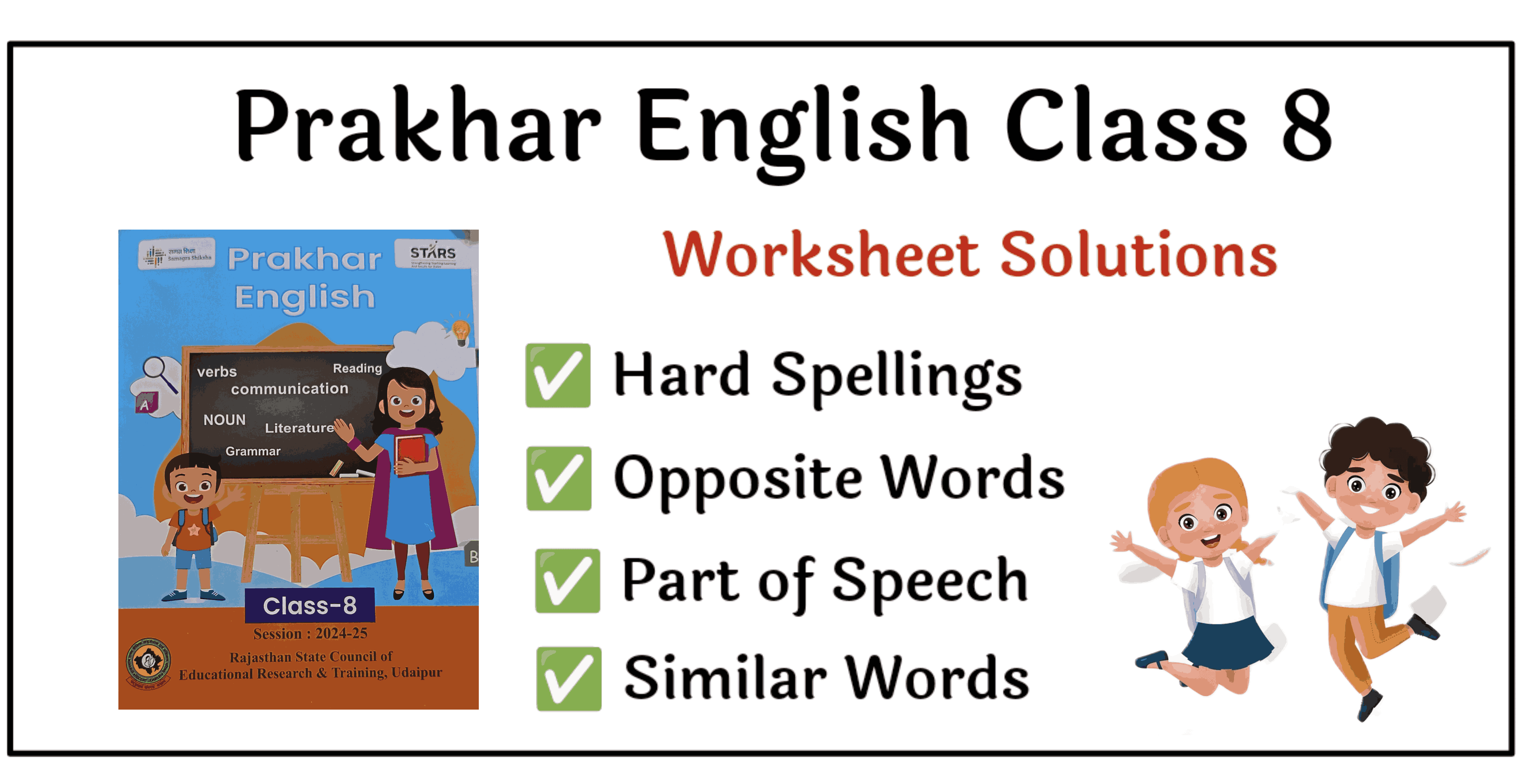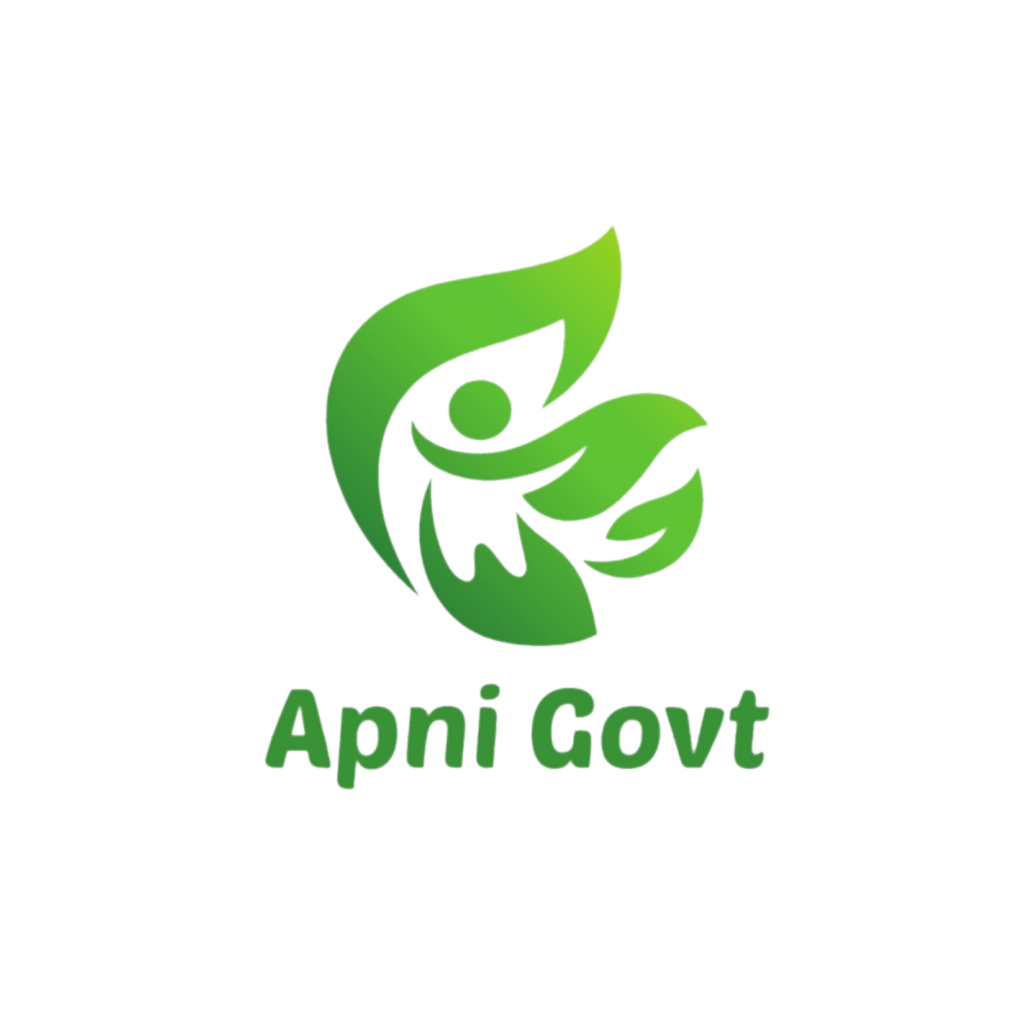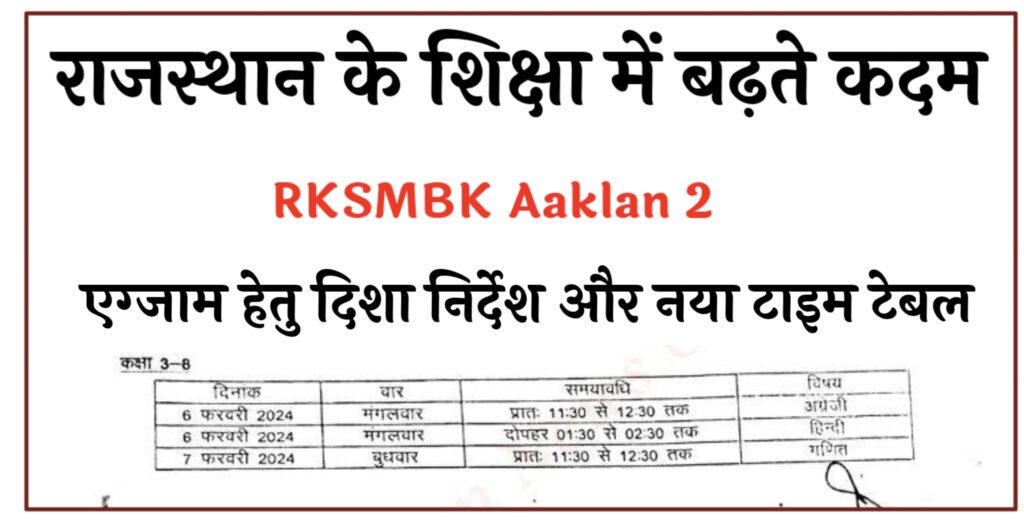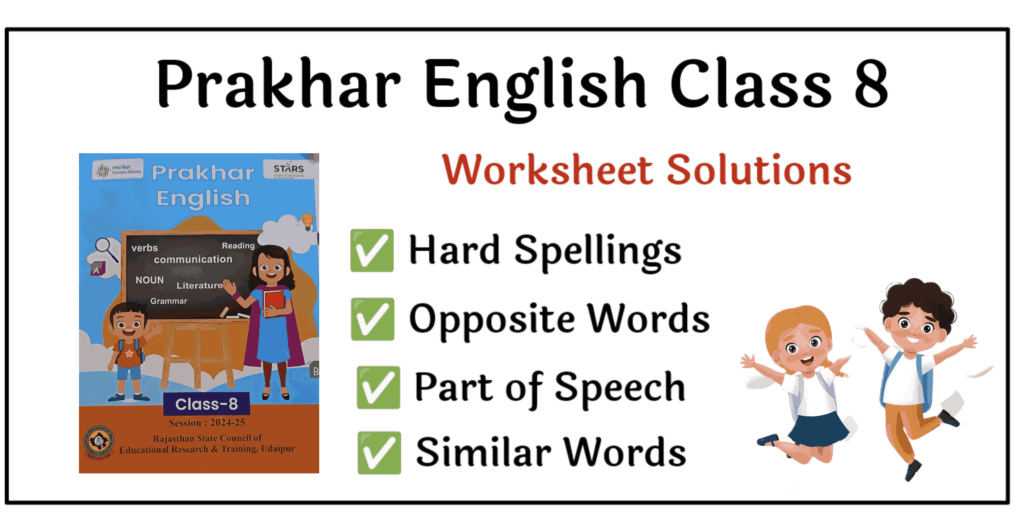Class 8 Worksheet 10 Question Answers
RSCERT Rajasthan State Council of Educational Research & Training, Udaipur द्वारा विद्यार्थियों के अधिगम स्तर को बढ़ाने के लिए एक बेहतरीन प्रयास हेतु वर्कबुक जारी की गयी है I हमने आपकी Learning में और सुधार करने और एक इस कार्यपत्रक (Class 8 Workbook) Worksheet 10 में Hard Spellings, Part of Speech, Grammar & Vocabulary , Gender,Opposite, Similar Words, One words etc यहाँ क्लियर किये है

Worksheet 10 Solution English
Here are the answers for the worksheet using appropriate prepositions:
-
C goes in Alphabet.
→ C goes between A and E in the alphabet. -
Nine comes eight.
→ Nine comes after eight. -
The policeman was running the thief.
→ The policeman was running after the thief. -
Raju is standing his mother and father.
→ Raju is standing between his mother and father. -
Wash your hands using the toilet.
→ Wash your hands before using the toilet. -
Five is four and six.
→ Five is between four and six.
Hard Spellings
यहां वर्कशीट 10 शब्दों के हिंदी उच्चारण और उनके अर्थ दिए गए हैं:
-
C goes between A and E in the alphabet.
- C (सी): एक अक्षर है, जो अंग्रेजी वर्णमाला का तीसरा अक्षर है।
- goes (गोज़): जाता है।
- between (बिटवीं): के बीच में।
- A (ए): अंग्रेजी वर्णमाला का पहला अक्षर।
- and (एंड): और।
- E (ई): अंग्रेजी वर्णमाला का पाँचवाँ अक्षर।
- alphabet (ऐल्फ़ाबेट): वर्णमाला।
अर्थ: C वर्ण A और E के बीच आता है।
-
Nine comes after eight.
- Nine (नाइन): नौ।
- comes (कम्स): आता है।
- after (आफ्टर): के बाद।
- eight (एट): आठ।
अर्थ: नौ आठ के बाद आता है।
-
The policeman was running after the thief.
- policeman (पुलीसमैन): पुलिसवाला।
- was (वाज़): था।
- running (रनिंग): दौड़ रहा था।
- after (आफ्टर): के पीछे।
- thief (थीफ): चोर।
अर्थ: पुलिसवाला चोर के पीछे दौड़ रहा था।
-
Raju is standing between his mother and father.
- Raju (राजू): एक व्यक्ति का नाम।
- is (इज़): है।
- standing (स्टैंडिंग): खड़ा है।
- between (बिटवीं): के बीच में।
- his (हिज़): उसका।
- mother (मदर): माँ।
- and (एंड): और।
- father (फादर): पिता।
अर्थ: राजू अपनी माँ और पिता के बीच खड़ा है।
-
Wash your hands before using the toilet.
- Wash (वॉश): धोना।
- your (योर): तुम्हारे/आपके।
- hands (हैण्ड्स): हाथ।
- before (बिफोर): पहले।
- using (यूज़िंग): उपयोग करते हुए।
- toilet (टॉयलेट): शौचालय।
अर्थ: शौचालय का उपयोग करने से पहले अपने हाथ धोओ।
-
Five is between four and six.
- Five (फाइव): पाँच।
- is (इज़): है।
- between (बिटवीं): के बीच में।
- four (फोर): चार।
- and (एंड): और।
- six (सिक्स): छह।
अर्थ: पाँच चार और छह के बीच है।
Opposite words, Gender, WH words
1. Opposite Words (विपरीत शब्द)
- Happy (ख़ुश) → Sad (उदास)
- Big (बड़ा) → Small (छोटा)
- Hot (गर्म) → Cold (ठंडा)
- Day (दिन) → Night (रात)
- Full (पूरा) → Empty (खाली)
- Old (पुराना) → New (नया)
- Up (ऊपर) → Down (नीचे)
- Fast (तेज) → Slow (धीमा)
- Good (अच्छा) → Bad (बुरा)
- Near (निकट) → Far (दूर)
2. Gender (लिंग)
Masculine (पुलिंग) and Feminine (स्त्रीलिंग)
- Boy (लड़का) → Girl (लड़की)
- Man (आदमी) → Woman (महिला)
- King (राजा) → Queen (रानी)
- Brother (भाई) → Sister (बहन)
- Father (पिता) → Mother (माँ)
- Uncle (चाचा/मामा) → Aunt (चाची/मामी)
- Son (पुत्र) → Daughter (पुत्री)
- Husband (पति) → Wife (पत्नी)
- Lion (सिंह) → Lioness (सिंहनी)
- Prince (राजकुमार) → Princess (राजकुमारी)
3. WH Words (प्रश्नवाचक शब्द)
- What (क्या)
Example: What is your name? (तुम्हारा नाम क्या है?) - Who (कौन)
Example: Who are you? (तुम कौन हो?) - Where (कहाँ)
Example: Where do you live? (तुम कहाँ रहते हो?) - When (कब)
Example: When is your birthday? (तुम्हारा जन्मदिन कब है?) - Why (क्यों)
Example: Why are you sad? (तुम उदास क्यों हो?) - How (कैसे)
Example: How are you? (तुम कैसे हो?) - Which (कौन सा/सी/से)
Example: Which book do you like? (तुम्हें कौन सी किताब पसंद है?) - Whose (किसका)
Example: Whose pen is this? (यह पेन किसका है?)
4. Tenses (काल)
Present Tense (वर्तमान काल)
- Simple Present: I go to school. (मैं स्कूल जाता हूँ।)
- Present Continuous: I am going to school. (मैं स्कूल जा रहा हूँ।)
- Present Perfect: I have gone to school. (मैं स्कूल जा चुका हूँ।)
- Present Perfect Continuous: I have been going to school. (मैं स्कूल जा रहा हूँ।)
Past Tense (भूतकाल)
- Simple Past: I went to school. (मैं स्कूल गया।)
- Past Continuous: I was going to school. (मैं स्कूल जा रहा था।)
- Past Perfect: I had gone to school. (मैं स्कूल जा चुका था।)
- Past Perfect Continuous: I had been going to school. (मैं स्कूल जा रहा था।)
Future Tense (भविष्यकाल)
- Simple Future: I will go to school. (मैं स्कूल जाऊँगा।)
- Future Continuous: I will be going to school. (मैं स्कूल जा रहा होऊँगा।)
- Future Perfect: I will have gone to school. (मैं स्कूल जा चुका होऊँगा।)
- Future Perfect Continuous: I will have been going to school. (मैं स्कूल जा रहा होऊँगा।)


